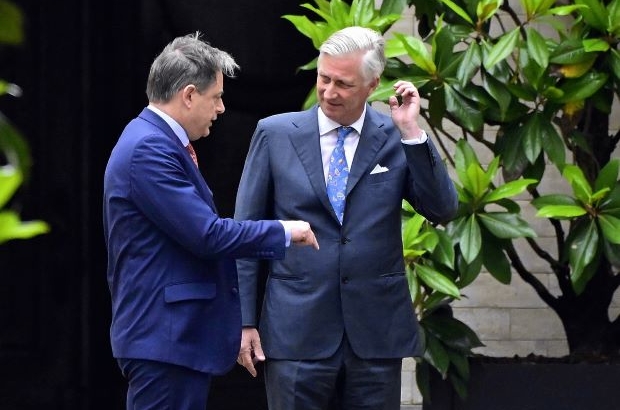- Daily & Weekly newsletters
- Buy & download The Bulletin
- Comment on our articles
King Philippe’s role in the formation of Belgium’s next government
Following his party’s defeat in the national elections, prime minister Alexander De Croo (Open VLD) formally tendered his resignation on Monday morning after a visit to King Philippe.
While De Croo remains caretaker prime minister, a new coalition is needed to run the country. Involving seven parties, it’s a thorny process that as Belgium knows only too well could take months to be completed.
The monarch now plays a key role orchestrating the formation of a new government, as RTBF explains.
After accepting the resignation of De Croo’s government at the royal palace, King Philippe consulted various political figure on Monday, including president of the senate Stephanie D’Hose and president of the chamber, Eliane Tillieux. They were followed by the presidents of the parties achieving the most votes: Bart de Wever (N-VA), Tom Van Grieken (Vlaams Belang) and Georges-Louis Bouchez (MR).
Over the following days, a parade of political figures, as well as socio-economic leaders, will be invited to audiences at the palace to discuss the most likely scenarios for the federal government coalition.
On the basis of these exchanges, the King will appoint an ‘informant’, a person who boasts solid political experience. This individual will in turn sound out the various parties in a bid to achieve a majority (coalition). The informant reports directly to the sovereign and a ‘formateur’ is appointed by the King, who is responsible for putting together a government agreement between the parties joining the coalition.
If the negotiations under this person’s leadership are successful, he or she will logically become the prime minister, head of the federal government, chair of the council of ministers and the ministerial cabinet.
The procedure can turn out to be very long and tedious with lack of agreement between parties sometimes requiring the King to appoint new informants or formateurs to explore other coalition avenues.
It notoriously took some 500 days to form a government under Di Rupo in 2010 and De Croo in 2020.
After Belgium’s triple elections on Sunday and municipal elections scheduled for 13 October this year, the risk of a protracted political stalemate is feared by many.
When finally a government agreement is approved by coalition members and ministerial portfolios have been assigned, King Philippe proceeds to appoint the ministers who will swear an oath of allegiance to him. And a collective sigh of relief is breathed by everyone.
Photo: Bart De Wever (N-VA) with King Philippe ©Belga/Dirk Waem



















